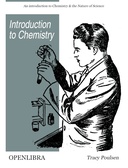Explore

Chemistry affects every area of our lives. Here is just one example of chemistry in action – the making of soaps. Soap was once made by boiling animal fat in ashes – the product was hard on the skin and not very pleasant to use. Today, soap manufacture involves complicated chemical processes to provide a wide variety of soaps for different skin types. Colors and odors can be custom-made for that individual experience.
Questions about matter have been asked for centuries. The ancient Greek philosophes spent a lot of time trying to figure out what matter was. Different philosophers debated whether matter was earth, water, air, fire, or some combination. They argued, but did not do any experiments at that time.
It took many centuries for humans to develop a better concept of what matter really is. Even today, we have an incomplete picture of exactly what this stuff is that we can touch and see. Chemistry involves the study of these substances, both in terms of basic properties and also learning all the things we can do with matter.
Chemists look at the world in two ways, often simultaneously. The two worlds of the chemist are the macroscopic world and the microscopic world. Macroscopic refers to substances and objects that can be seen, touched, and measured directly. Microscopic refers to the small particles that make up all matter. Chemists must observe matter and do experiments macroscopically and then make generalizations and propose explanations that are microscopic in nature. For example, anyone can observe the physical change in appearance that occurs as an iron object such as a tractor that is left out in the elements gradually turns to rust. However, a chemist looks at the rusting tractor and thinks about what is going on with the individual atoms that make up the iron and how they are changing as a result of exposure to oxygen in the air and water from rain. Throughout your study of chemistry, you will often switch back and forth between the macroscopic and microscopic worlds.
Why read this book? Have your say.
You must be logged in to comment.
Rights Information
Are you the author or publisher of this work? If so, you can claim it as yours by registering as an Unglue.it rights holder.Downloads
- 3929 - pdf (CC BY-NC) at Unglue.it.
Keywords
- acids_tag
- atoms_tag
- bases_tag
- Chemistry
- chemistry_tag
- compounds_tag
- elements_tag
- reactions_tag
- Science
Links
web: https://openlibra.com/en/book/introduction-to-chemistryEditions

